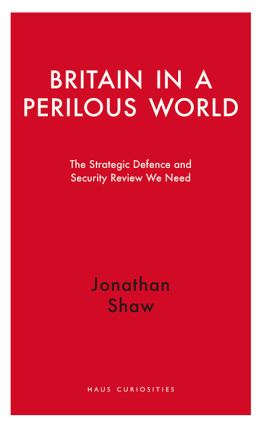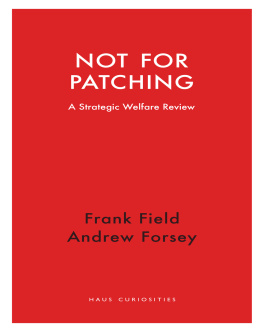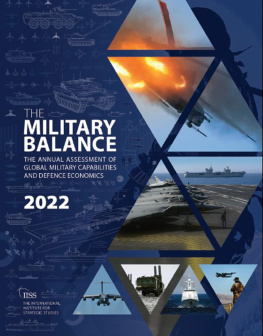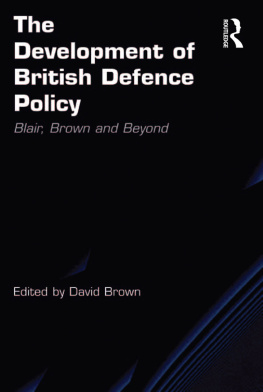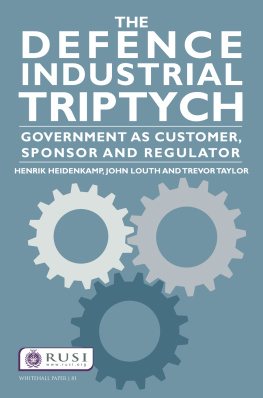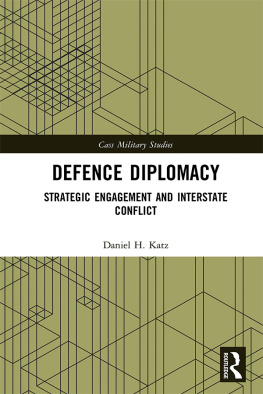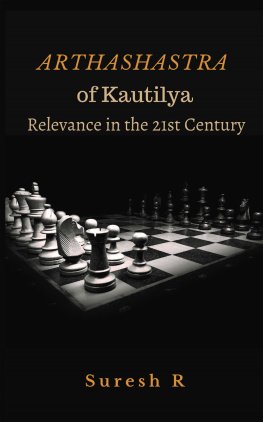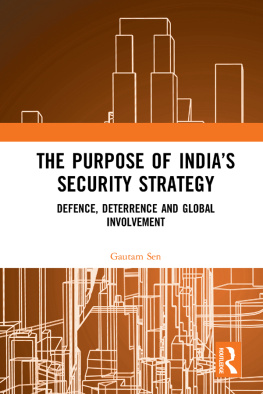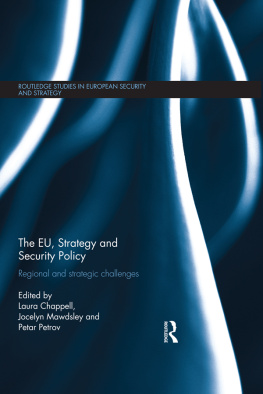PART 1
Introduction
The world changes; and government plans must change if they are to remain relevant. In the UK, this process of aligning inherited plans with current realities and attempting to match current plans to future requirements has historically been managed on a periodic basis by a process called a defence review. The last of these was called the Strategic Defence Review and completed in 1998 eighteen months after the election of New Labour. This was updated in response to the 9/11 attack by Al Qaida on the US with a New Chapter published in 2002. So when the Coalition came to power in 2010, there had been no full defence review for 12 years, despite 9/11, Tony Blairs Chicago speech of 1999 that committed the UK to an interventionist foreign policy under the guise of liberal interventionism, and the invasions of and enduring campaigns in Afghanistan and Iraq, and despite the financial crash of 2008, which made the Governments spending plans unaffordable. In response, the Coalition launched a review with three key features. First, it expanded the remit of the review to cover not just defence (the traditional preserve of the Ministry of Defence) but also to include security, a far wider topic covering terrorism, cyber, energy, climate change and interests right across Whitehall. Secondly, it announced that such reviews should take place every five years, in step with the mandated rhythm of an election every five years under the subsequent Fixed Term Parliament Act. Thirdly, the primary target for its Strategic Defence and Security Review (SDSR) was to balance the books; in addition to the country being broke, the MoD had an inherited equipment programme and accumulated liabilities (eg pensions) that it could not afford within its own budget. So the 2010 SDSR was more about economics than defence or security. And to the extent it thought through some costed force structures for the Army, Royal Navy or Royal Air Force, it did so on the basis of a postulated structure for 2020, which was too far in the future to be accurately costed. All of which means there has been no proper review of this area since 1997, an eighteen year gap by the time the next is published in 2015.
This suggests two principal reasons why the SDSR 2015 is so crucial for the UK. Both reasons derive from the consequences of the SDSR 2010 being a Treasury-driven cost-cutting exercise that posited a 2020 force structure. Firstly, SDSR 2015 will have to address the question of the true affordability of the 2020 structure, a question that was deferred in 2010 until 2015. The 2020 structure clings to the traditional and inherited UK posture: a full-spectrum capability which means having a little of everything in the military toolbox; full geographic scope, ie we can deploy and operate globally; and the ability to support a stabilisation operation such as in Iraq and Afghanistan. This was most unlikely to be affordable but had the political attractions of avoiding any hard choices and maintaining a flexibility to respond at some level to most eventualities. Secondly, all parties seem to accept they will be out of the recession in the next parliament so they cannot hide behind the economy stupid dictum as their strategic guide, as this Coalition government has justified itself. They will need to look beyond economics and make a case for where they see Britain stand in the world.
And much has changed since the last full defence review in 1998, both in terms of the scope of the review (now defence and security, and the interrelation of these two) and in terms of actual geo-strategic shifts, not least since 2010. From my perspective now on the sidelines, after 32 years in the Army and Whitehall, these changes include:
the Arab Spring/Islamic Winter,
the Russian seizure of Crimea,
Chinas aggressive pursuit of its 9 dash map claims, a map with literally 9 dashes on it depicting the extent of Chinas claims, which extend deep into what other nations and international law see as their territorial waters in the South China Sea, an appellation that in this context is profoundly unhelpful.
More profoundly, these can be seen as symptomatic of a challenge to the post-WWII international order based on western, largely United States, mores. The rule of law (on which reduced European levels of defence spending are predicated) seems to be giving ground to the rise of facts on the ground as the defining reality of international affairs (an approach applied since 1967 by Israel and its settlements policy on the West Bank in contravention of International Law). Precisely at the time that Europe is cutting its conventional defences in accord with its assumption of and aspiration to a rule-based world order, much of the rest of the world seems to be moving in the other direction. Add to that energy security, cyber security, migration trends and climate change and this review has a bewildering range of topics and interdependencies to tackle in an absurdly short time. The country needs a good Strategic Defence and Security Review and so do politicians and Whitehall, for their credibility in the eyes of the public is diminishing; even the most self-interested of politicians should recognise the need to be seen to get this right.
And yet, from my experience, I judge that Britain is incapable of doing a Strategic Defence and Security Review; it lacks the culture and institutions required for the task. Since 2000 until my retirement in 2012, I worked in or directly for Whitehall in a variety of capacities. As such, I was in the governments crisis management centre in the Cabinet Office Briefing Room (COBR) through the Fuel Protest of 2000, the Foot and Mouth Disease epidemic of 2001, 9/11 and its aftermath, and again through the 7/7 bombing in London. My time as Director Special Forces and in command of the British-led Division in Iraq again saw me dealing directly with ministers and the Senior Civil Service, as did my final four years in the MoD dealing with International Security Policy and then the Defence Cyber Security Programme. I have observed gaping holes in the executive competence of Whitehall, holes that will be exposed when faced with the challenges of the SDSR. That really concerns me, as it will the general population, and as it should the Whitehall bubble within which most of the problems lie.
The apparent simplicity of the SDSR challenge belies the inherited obstructions and the structural incapacity that typifies Whitehall today. Simplicity because superficially it might appear that doing a review is easy: work out what you want to achieve, allocate the resources to do it, and then execute the plan. Yet this is not to be a defence review but a defence and security review. And it is to be strategic whatever that means which surely will bring a battle for priority against other governmental strategic concerns; how much resource should be allocated? And does the governments track record on cross-Whitehall programmes give any hope that Whitehall can execute a defence and security plan across all of government over time? It is my contention that the structures of Whitehall are ill-suited to completing a Strategic Defence and Security Review and incapable of executing one once created.

